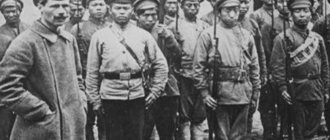In our country there are a large number of correctional institutions in which convicts serve their sentences. It all depends on what kind of criminal act the person committed.
What is a colony settlement? This question is asked by many citizens of our state, whose loved ones were sent there to serve their sentences. So, in the settlement there are those convicted for acts that were committed by them through negligence, as well as those persons who committed atrocities of the least or medium gravity. Read about all this in this article.
A little about the main thing
So, what is a colony settlement? This is one of several types of correctional institutions in our country. There, those convicted for acts that were committed through negligence or intentionally, but for the first time, serve their sentences.
Most often, drivers who are guilty of a road accident in which people died, as well as those criminals who have committed minor thefts, are sent to a settlement colony. But, in addition, convicts who were transferred for good behavior from other correctional institutions (general or strict regime) serve their sentences there.
But, despite the fact that the settlement has easier conditions for serving a sentence, it will not be possible to leave the territory of the colony before the end of the term. It is allowed only with the permission of the administration of a given correctional institution to go to work or study outside the colony-settlement. You need to know this.
Legal regulation
So, the main regulatory act regulating the situation of convicts serving their sentences in penal colonies is the PEC. Article 129 of the Criminal Executive Code regulates the conditions of stay of the latter in these correctional institutions.
Based on the above legal norms, convicts in the settlement:
- live in dormitories;
— carry out labor activities in accordance with the Labor Code (with the exception of choosing the place of their professional activity and dismissal from work);
- have a special identification document with them.
general characteristics
What is a colony settlement? This is a specialized type of correctional facility, where there is no high fence with barbed wire, as in all other colonies. But the convicts are kept here under the protection of the colony administration.
In this case, citizens guilty of crimes live and work in such conditions that sometimes they even forget that they are in captivity. Because most of the settlement colonies are located closer to the forest, in small specialized villages. Nevertheless, all convicts here are required to work. The latter even have cash with them and can buy necessary products and personal items at a local store. Nevertheless, many of the convicts still take a long time to adapt to such living conditions. Moreover, if they had not previously had to serve their sentences in places isolated from society.
Hygiene in prison
The peculiarity of the colony is that there are a large number of people in a small area. Accordingly, hygiene issues are of particular importance here.
Prisoners must adhere to the following rules:
- Wash your hands with soap after visiting the toilet. It is forbidden to shake hands with people without washing your hands after using the toilet - prisoners are punished for doing this. Most often we are talking about beatings.
- It is forbidden to go to the toilet while inmates are eating or cooking. If there are more than a dozen prisoners in a hut, then this rule can be ignored.
- Food that falls on the floor should be washed thoroughly.
- Feet should be washed daily.
- Persons who neglect the rules of hygiene are called pigs. They are despised.
In addition, prisoners should regularly check themselves for lice. Particular attention is paid to the seams on underwear. If parasites are detected, inmates and the colony administration should be warned about this. A person with lice is sent to a special room for disinfection.
Interesting
As you know, there are no general regime colonies where both men and women serve their sentences. Because the law prohibits it. However, in colony settlements everything is a little different. Men and women can serve their sentences here together, but they live in different dormitories. Moreover, according to the rules of many correctional colonies, convicts of the opposite sex should not have contact with each other, but in practice it turns out completely differently. For example, if men and women live in different dormitories, but on the same territory, then they somehow meet each other, communicate and even work together at the same enterprise.
Schedule
The colony administration sets its own schedule, but it usually includes:
- Wake up at 5-6 o'clock in the morning, exercise and clean the beds.
- Morning check.
- Breakfast.
- Path to work and distribution of tasks.
- Eight-hour working day (in practice, you have to work 10-14 hours).
- Dinner.
- Returning from work.
- Dinner.
- Educational activities.
- Free time.
- Preparation for sleep.
- Lights out.
A separate schedule is created for studying.
Have a question for a lawyer? Ask now, call and get a free consultation from leading lawyers in your city. We will answer your questions quickly and try to help with your specific case.
Telephone in Moscow and the Moscow region: +7
Phone in St. Petersburg and Leningrad region: +7
Free hotline throughout Russia: 8 (800) 301-39-20
Nutrition
Food is provided at a minimum level; there is a canteen on the territory of the free settlement. Also, some dormitories have kitchens, and the administration has the right to allow the use of utensils for self-cooking. The store on the territory of the colony sells necessary products.
Job
Possible types of work vary depending on the location of the settlement colony. In settlements near the city, prisoners look for work in the city itself. This is unskilled labor in housing and communal services, factories, etc. In the colonies themselves there are clothing factories. As for the free settlements in the north and east of the Russian Federation, they are located in remote places and the only type of labor there is logging and wood processing. At the same time, there may not be enough work for all the prisoners in the settlement, which makes it a privilege for those wishing to be released on parole.
Numerous facts of violation of the rights of prisoners have been noted:
- Twelve hour work day.
- Withdrawal of part of earnings for food and other needs.
- Forced to sign “Article 106,” which obliges prisoners to work for free to improve the colony.
For defending their rights, convicts are sent to a punishment cell, which deprives them of the right to parole. In addition, positions are traded in the colony, but often the prisoner loses money and does not get a job.
Studies
Article 129 of the Penal Code of the Russian Federation allows prisoners of free settlements to study in secondary specialized and higher educational institutions on the territory of the municipality. Form of study – correspondence.
Entertainment and relaxation
On the territory of the colonies there are libraries and assembly halls, and sometimes there are cinemas and TV rooms. With good behavior, the administration may agree to leave the settlement.
Despite the ban, card games are popular in the colonies, and some settlers make alcohol from mash.
Religion
In some colonial settlements there are chapels or mosques. The rest are visited periodically by clergy.
According to the law, the administration of places of serving sentences does not have the right to interfere with the performance of religious rituals, but in practice, Muslims are often not allowed to perform namaz, due to its inconsistency with the general daily routine.
Dates and visits
Unlike other places of deprivation of liberty, in colony settlements there are no restrictions on the number of visits. Hotels have been created for visitors in the settlements.
This is a significant advantage of these places of detention.
Transfer of products and things
As in the case of visits, prisoners of free settlements also have the right to receive parcels and money transfers without restrictions.
This allows you to purchase in the store or receive from relatives a sufficient amount of food for normal nutrition.
Is it possible to wear long hair?
Bans on hairstyles are established within the colonies. Long hair is allowed in women's settlements; this type of hairstyle is not accepted among men.
Using a mobile phone
On the territory of the Russian Federation there is a ban on mobile phones in all places of deprivation of liberty, but often the guards themselves sell phones several times more expensive than their real price. The administration conducts searches and confiscates communications equipment, but does so infrequently.
Is it possible to go home for the weekend?
Officially, there is no such possibility, since leaving the territory of a colony settlement is possible only with the consent of the administration and due to the need to work. In practice, prisoners reach an agreement with the settlement leadership and leave for the weekend. In addition, the law allows cohabitation with family on the territory of the settlement, provided there are no violations on the part of the prisoner.
Are hours allowed?
Unlike prisons and pre-trial detention centers, in free settlements it is allowed to wear a watch.
Specific Categories
Once again it is necessary to return to the question of what a colony-settlement is. This is a correctional institution in which both men and women can be imprisoned for committing the following illegal acts:
- committed through negligence, if they have not previously served a sentence of imprisonment;
- intentional, but only of minor or moderate severity, provided that they were committed for the first time;
- those who committed atrocities through negligence and have previously served time in a colony.
Persons who were transferred to a settlement from general or strict regime colonies also serve their sentences in this correctional institution.
Other features of the execution of punishment
It is worth observing some general principles, especially if a citizen finds himself in such a place for the first time:
- At first it is recommended not to speak, but to listen more. They keep all conclusions and value judgments to themselves.
- Information about sexual and personal life is unnecessary here.
- If the essence of the obligation and the price are not clear, you should refuse it. If a valuable gift is being given, it is worth passing on another item of approximately the same value.
- Refusal to enter into conflicts. Moreover, if it concerns the “thieves’ government or administration.
You can turn to the administration for help only if a conflict arises that threatens life and health. But it is better to regulate all problems yourself, since after this a negative attitude may develop towards the convicted person. There is a high probability of ending up in social isolation for a long time, and then difficulties arise with adaptation.
Nuances
Here it is necessary to say that convicts transferred from other correctional colonies (general and strict regime) must serve their sentence separately from those who have not previously served their sentence in isolation from society. However, in practice everything happens completely differently. Most often, in a colony-settlement, all convicts are kept together, live in the same dormitory and work together.
According to the law, this is illegal. After all, persons who have already repeatedly served time (for example, for a serious act) can have a negative impact on those citizens who have not previously committed crimes and were sent to prison for committing a careless crime (for example, for an accident in which a person was killed or injured ). This must be taken into account.
Conditions
In a colony-settlement, convicts are kept without guards. There are no towers on which correctional officers stand with machine guns. Nevertheless, those convicted there are under constant control of the colony administration. They are allowed to move freely within the territory of this correctional institution, they can carry money with them in order to make purchases in the store at the colony. Many convicts even wear jewelry, because by law they can have valuables on them.
Persons serving sentences in a colony-settlement receive parcels and parcels, and also have the right to visits without limiting their number. You need to know this.
Photos of colony settlements
Photos were kindly borrowed from the official pages of the Federal Penitentiary Service: FKU KP-12 Federal Penitentiary Service of Russia for the Ivanovo Region, Federal State Institution “KP-6 Federal Penitentiary Service of Russia for the Kaluga Region”.
How do representatives of the fair sex serve their sentences?
In principle, conditions in the settlement are the same for both men and women. Of course, girls do not do hard work, unlike the stronger half of humanity. Everyone lives in dormitories, has their own bed, a bedside table for personal belongings and a chair for clothes.
Here it is also necessary to say that women’s colony settlements are most often located in general regime correctional institutions for representatives of the fair half of humanity. There are not many places there, therefore, by court decision, only the most responsible and good production workers, who have almost completely proven their correction in practice, are transferred there for good behavior and a conscientious attitude to work. That's the order.
Quarantine
Once in the colony, the prisoner does not immediately go to the dormitory. First, he must spend up to 15 days in quarantine. The conditions for keeping quarantined prisoners are regulated by Article 79 of the Criminal Code of the Russian Federation.
After arriving at the colony, the convict is sent to the quarantine department. The conditions of stay here correspond to the usual conditions of serving a sentence.
In this case, quarantine is not only a medical term, but also a concept of a criminal procedural nature. It involves performing a number of procedural actions before the convicted person enters a cell or dorm room.
List of procedures
The complex of quarantine procedures is regulated not only by the norms of the Criminal Procedure Code, but also by the internal acts of the correctional institution. Each new arrival must be examined by the doctor on duty or a paramedic. The convict is asked questions regarding his state of health, complaints are listened to, and blood pressure and blood sugar levels are measured.
Next, the prisoner must undergo stool and urine tests and be weighed. The prisoner's head circumference is also measured. All this data is entered into his medical outpatient record. The final stage of the examination is fluorography.
Those patients who complain of specific ailments are referred for examination to a specialized specialist. If there are no complaints, then the person is transferred to a general place of detention.
If a prisoner has been subjected to torture or beatings, he must notify the doctor about this. However, you should insist that this information be included in the medical record. This is especially important if the prisoner plans to challenge the court's decision. By citing bruises and abrasions, he will be able to insist that the testimony was extracted from him by force.
If the convicted person believes that the medical examination was carried out insufficiently or in violation of rights, then he can insist on a re-examination. According to general rules, it should be carried out by employees of other medical organizations. If the administration refuses to meet the citizen halfway, he has every right to appeal to the prosecutor’s office or to court.
Prison doctors and administration staff are suspicious of statements made by prisoners regarding poor health. The fact is that some prisoners pretend to feel much worse than they really are.
Opinions of former convicts
To begin with, I would like to say that not a single person is immune from ending up in places of isolation from society. As was stated earlier, drivers most often end up in settlements because of whose fault one or more people died. These citizens cannot be called criminals. After all, they did not want negative consequences to occur.
Reviews about the colony-settlement are quite contradictory. Many convicts who have previously served their sentences in the general regime believe that it is better there. In a colony-settlement, the administration often establishes its own rules, convicts work without days off or lunch, they are constantly checked (even up to 10 times a day and at night). Moreover, the latter also complain that there is no medical office in the settlement, the store is open very rarely, and it is practically impossible to get there.
Some citizens who served their assigned sentences there even said that they wrote complaints to various authorities, but never received any answers. Therefore, the opinions of former convicts on this issue differ. Nevertheless, some of them believe that a colony-settlement is good for those who love to work and really want to improve. But it can be really very difficult for those convicted there for the first time, especially at the beginning of their sentence.
Trust no one
The basic principles of life in the zone are perfectly illustrated by the somewhat hackneyed phrase “don’t believe, don’t be afraid, don’t ask.” You can't trust anyone here. Even those who were friends in the wild can betray. The prison environment radically changes people.
You should absolutely not trust friendly strangers who are trying to get a newcomer to talk. This is especially true for pre-trial detention centers and temporary detention facilities. Investigators often send “mother hens” here, wanting to get the accused to talk. Subsequently, these persons can be used as witnesses in court.
For information
Transfer to a colony-settlement is carried out only by decision of the justice authority. The administration of a correctional institution does not have such powers.
Only those persons serving their sentences in general and strict regime colonies who are conscientious about their work and have impeccable behavior, without disciplinary sanctions, are transferred to settlement. This rule must be remembered.
Only positively characterized convicts who have served at least one quarter of their sentence in a given correctional institution are transferred from a general regime colony to a settlement. You need to know this.
Also, a person is transferred from a maximum security colony to a settlement colony only after the convict has served at least one third of the sentence imposed by the judicial authority. That's the order.
Particularly dangerous repeat offenders, as well as persons sentenced to lifelong isolation from society, are not transferred to a penal colony. You need to know about this.
How to find out the information you need
As a rule, the convict gets to the colony-settlement under his own power after receiving a certain order. He is under the control of the criminal inspectorate until he arrives at the place of serving his sentence. Everything here is quite clear.
The address of the colony settlement will be indicated in the order issued to the convicted person. So it's almost impossible to get lost. Moreover, all colony settlements are located in special areas. villages, and public transport goes there. But sometimes it happens that the convicted person does not arrive there at the appointed time to serve his sentence. In this case, he may be put on the wanted list.
Moreover, the court, at the request of the executive inspection, has the right to change the latter’s type of correctional institution and transfer it to a general regime. So there is no need to violate the rules specified in the instructions.
The number of the colony settlement is also indicated in this document issued to the convicted person. He has the right to provide this information to his relatives so that they can come to him on a date or send a parcel.
Escape attempts: reviews
Convicts say that many alcoholics and drug addicts often escape. However, everything is much simpler than shown in the films. In fact, most often people only run to their home, get drunk and then are found right there.
The worst thing is if before imprisonment the person lived in the region. Accordingly, the search will drag on for several days until he gets home. Also, convicts say that there are those guys who run away to their beloved girl, who begins to ignore them and not call them.
To the above
According to the current legislation, there is no established regime in the colony-settlement. It is believed that it is easier than in other correctional institutions. Moreover, the administration monitors order in the colony-settlement.
Nevertheless, positively characterized convicts can even live with their families outside the institution. If, of course, the head of the colony allows this to be done. Some convicts even study by correspondence in educational institutions and travel to the city to work unaccompanied by employees of this correctional institution. In addition, the majority of persons serving their sentences in the settlement wear only civilian clothes. Therefore, in appearance they do not differ much from ordinary free citizens.
Obscene language
You should be more careful with swearing in the zone. Mat is perceived here as a sign of aggression. But it is only appropriate in some situations. Curses associated with homosexual contacts and mention of the male reproductive organ are considered especially rude here. If a person is sent, he should not hesitate to hit the offender. Moreover, this should be done even if the offended person is not confident of his victory in the fight. Otherwise, he will be considered a weakling with all the ensuing consequences.










